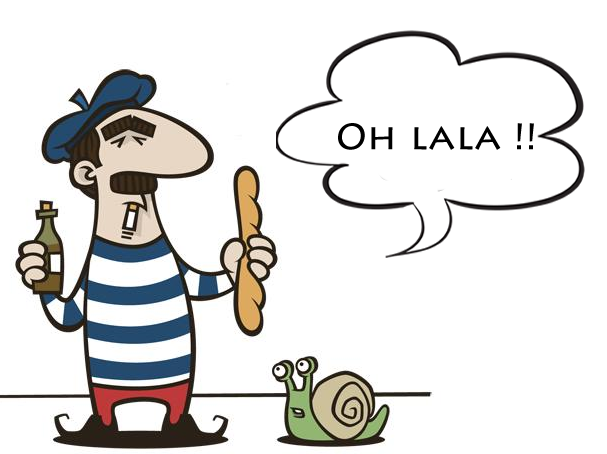Difference between revisions of "Language/French/Vocabulary/Express-Surprise"
< Language | French | Vocabulary
Jump to navigation
Jump to search
(→Quoi ?) |
|||
| Line 47: | Line 47: | ||
==Quoi ?== | ==Quoi ?== | ||
* | *What? | ||
Quoi ? Il a fait ça? (What? He did that?) | |||
==C'est pas vrai ?== | ==C'est pas vrai ?== | ||
Revision as of 16:17, 8 July 2017
When something unusual happens, French people have their own casual and fun expressions like in the examples below:
Ça, alors !
- My goodness!
Trop bien !
- How good!
C'est pas possible !
- I can't believe this!
The correct sentense would be: "CE N'est pas possible" but French often omit the "N" in the spoken and familiar language.
C'est magnifique !
- Magnificent!
Génial !
- Great!
Impressionnant !
- Awesome!
Incroyable !
- Amazing!
Mon Dieu !
- Oh my God!
Oh la la !
- Oh my God!
Ouf !
- Phew!
Quel malheur !
- What a disgrace!
Comme c’est beau
- How beautiful!
Quel travail !
- What work!
Quelle chance !
- What a Luck!
Quoi ?
- What?
Quoi ? Il a fait ça? (What? He did that?)
C'est pas vrai ?
- No way!
N'importe quoi!
- Whatever
Je n’en crois pas mes yeux !
- I can’t believe my eyes!
Trop bien !
- Awesome!
Oh la vache !
- holy cow!
Mince alors ! / zut alors !
Surprise with a certain degree of disappointment or exasperation you could translate as : “Ah, heck!”
Putain !
- f**k!
Among young French people, "putain" is so common, it may even be used as often as the word "oui". Its nearest equivalent in English is probably “f**k!”. It can be used to express anger, but can also be used to describe something amazing : "C'est un putain d’artiste!" (it's a f****ing! artist).
